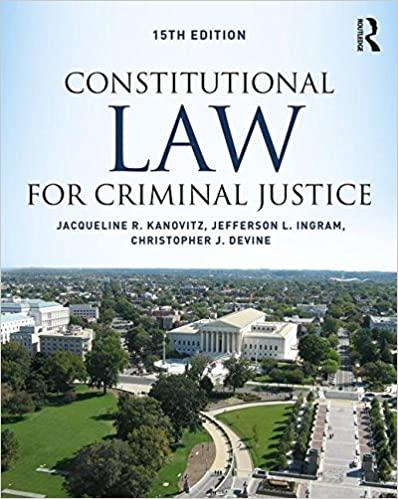Question
1. Anyone who acquires inside information as a result of a corporate insider's breach can be held liable under SEC Rule 10b-5 (Securities Act of
1. Anyone who acquires inside information as a result of a corporate insider's breach can be held liable under SEC Rule 10b-5 (Securities Act of 1934) as a "tippee".Which is not a requirement that must be met to hold the "tippee" (i.e., recipient of the insider information) liable for insider trading violations
a.Insider ("tipper") breached a fiduciary duty not to disclose inside information.
b.The recipient ("tippee") has a personal relationship with the provider ("tipper") of the inside information.
c.The tippee recipient knows (or should have known) of the insider's breach of duty and benefits from it.
d.The disclosure is made in exchange for personal benefit.
2.In 2002, Congress passed the Sarbanes-Oxley Act in response to a series of corporate scandals.Which is not a provision of the Sarbanes-Oxley Act
a.Chief corporate executives must take personal responsibility for the accuracy of financial statements and reports filed with the SEC.
b.Public accounting firms are subject to regulation by the Public Company Accounting Oversight Board.
c.All members of a publicly traded corporation's audit committee must be outside directors.
Whistleblowers must comply with internal company procedures before reporting any violations to outside agencies.
Step by Step Solution
There are 3 Steps involved in it
Step: 1

Get Instant Access to Expert-Tailored Solutions
See step-by-step solutions with expert insights and AI powered tools for academic success
Step: 2

Step: 3

Ace Your Homework with AI
Get the answers you need in no time with our AI-driven, step-by-step assistance
Get Started


